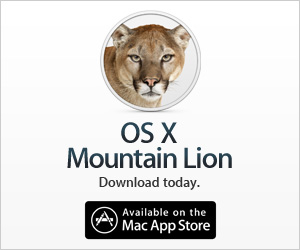OS X Mountain Lion Review Roundup

This morning, Apple released OS X Mountain Lion (10.8) on the Mac App Store, for $19.95. I have been using Mountain Lion since Beta 3 as a part of the OS X Developer Program. While there were a few bugs during the betas, as to be expected, the ones I noticed were all fixed by Apple by the time they released the GM Seed to developers a few weeks ago. Since then, the OS has been rock solid. There are lots of new features, many of which I think you'll appreciate. Rather than attempt to explain them to you myself, I wanted to list a few places where you can go read reviews of Mountain Lion written by the veteran reviewers themselves.
First and foremost, I want to point out, that John Siracusa has once again written one of his famous OS X reviews (Web or Kindle) . John's review, which weighs in at 25,935 words, is the most in-depth review of all reviews. John has famously written epicly detailed reviews of OS X going on for over a decade now. His reviews are a must-read by die hard Apple users, so much so that Marco Arment has wrote a review of his review (which is quite funny to read).
Review Roundup
- John Siracusa - "OS X Mountain Lion" (Web or Kindle)
- John Gruber - "Mountain Lion"
- Jason Snell - "OS X Mountain Lion (10.8)"
- MG Siegler - "OS X Mountain Lion: Quick, Familiar, Cheap, And Drenched In iOS Goodness"
- Jim Dalrymple - "Apple Releases OS X Mountain Lion"
- Wayne Dixon - Mac OS X 10.8 Mountain Lion and ML Server via Web, Kindle
- Federico Viticci - "OS X Mountain Lion Review"
- Richard Gaywood - "OS X Mountain Lion: The TUAW Review"
- Shawn Blanc - "Mountain Lion and the Simplification of OS X"
- Harry McCracken - "Apple OS X 10.8 Mountain Lion Review: The Mac's Lion Adventure Continues" While a lot of these reviews, or probably all, talk about the same topics, like me you may wish to read them all as I respect the views of each author and each author will have a different take on these features. Also, some reviewers will catch details that the others miss. I like to have a thorough understanding of the tools I use, so knowing as much as possible about OS X is desirable to me. I find that reading all of these reviews each year when new OS X versions come out gives me that knowledge.
